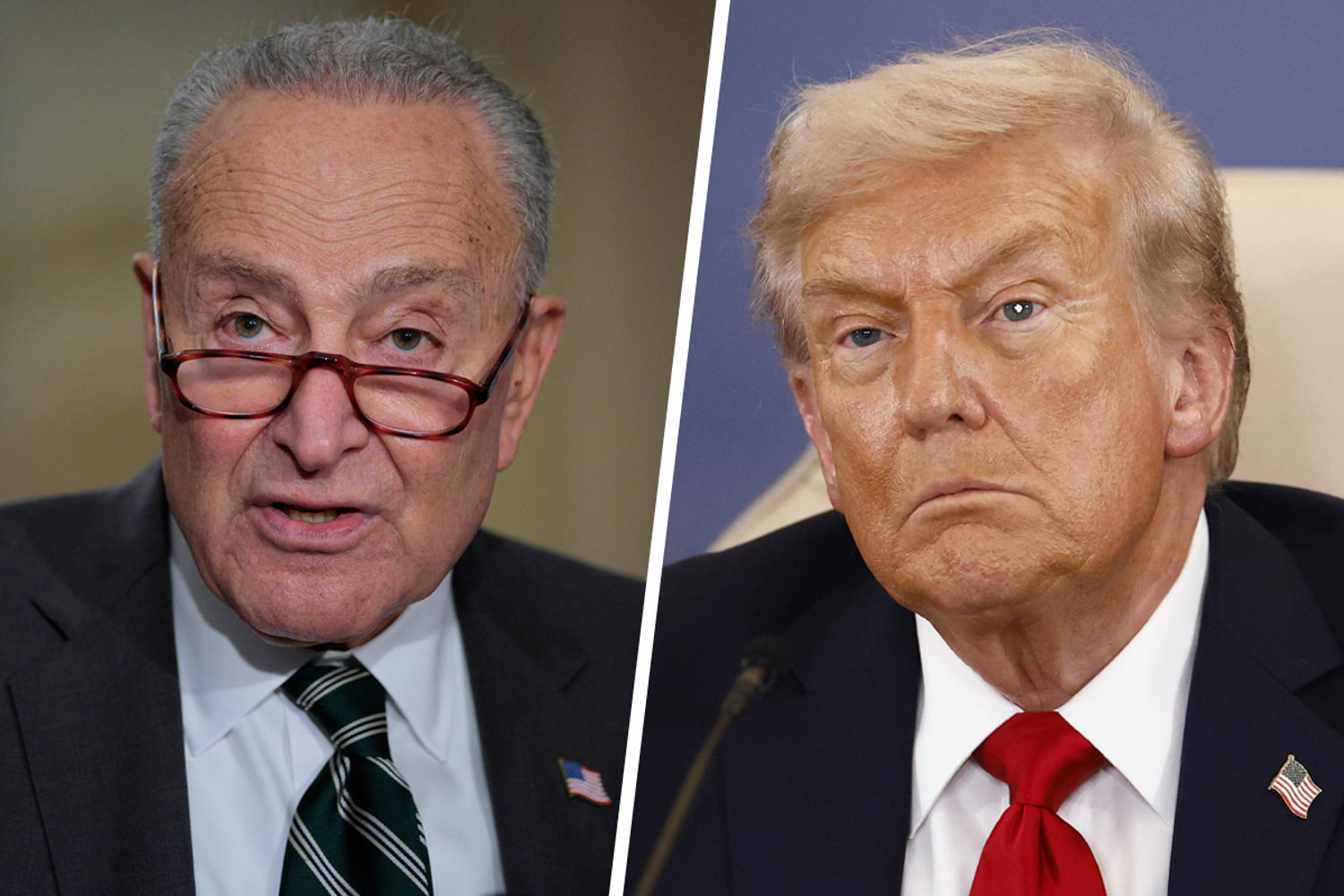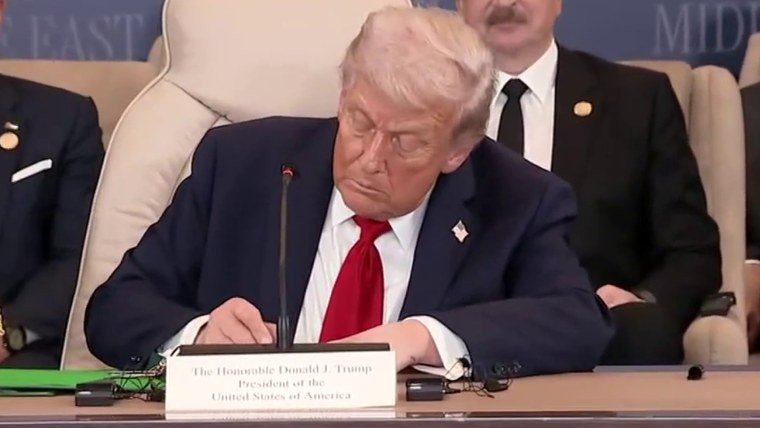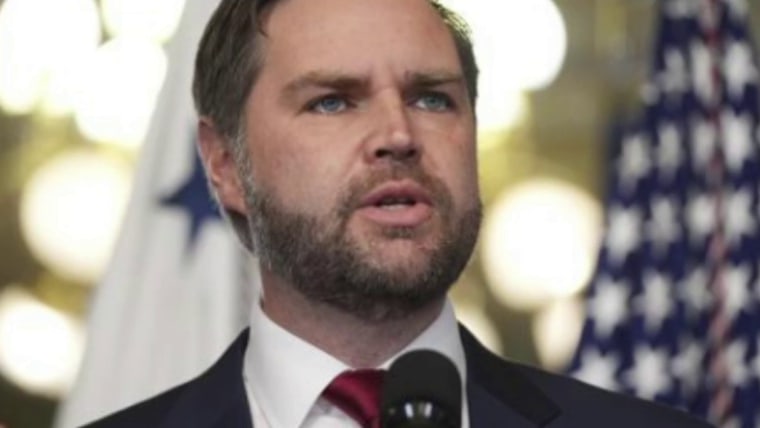The Dictatorship
US buys Argentine pesos in deal with Trump

WASHINGTON (AP) — The United States directly purchased Argentine pesos on Thursday and finalized a $20 billion currency swap line with Argentina’s central bank, Treasury Secretary Scott bessent said in a social media post, a rare move aimed at stabilizing turbulent financial markets in the cash-strapped Latin American ally.
“U.S. Treasury is prepared, immediately, to take whatever exceptional measures are warranted to provide stability to markets,” Bessent said, adding that the Treasury Department held four days of meetings with Argentine Economy Minister Luis Caputo in Washington D.C. to cement the deal.
Argentina’s libertarian President Javier Milei, a fervent admirer of U.S. President Donald Trumpthanked Bessent for his “strong support” and Trump for his “powerful leadership.”
“Together, as the closest of allies, we will make a hemisphere of economic freedom and prosperity,” Milei said in a social media post.
Bessent, under fire from U.S. farmers and Democratic lawmakers, has insisted that the credit swap is not a bailout. Farmers are angry about the idea of rescuing Argentina, whose own farmers have benefited from a recent gush of sales of soybeans to China at the expense of their U.S. counterparts. Lawmakers have pushed Trump to explain how this financial help aligns with his “America First” agenda.
After the announcement Thursday, a group of Democratic Senators introduced the “No Argentina Bailout Act,” which would stop the Treasury Department from using its Exchange Stabilization Fund assist Argentina.
“It is inexplicable that President Trump is propping up a foreign government, while he shuts down our own,” Democratic Sen. Elizabeth Warren of Massachusetts, said in a statement. “Trump promised ‘America First,’ but he’s putting himself and his billionaire buddies first and sticking Americans with the bill.”
It doesn’t help that repeated bailouts have failed to stabilize the crisis-stricken economy of Argentina. As the International Monetary Fund’s biggest debtor, it owes the global lender a staggering $41.8 billion.
Milei, a wild-haired far-right economist, came to office in late 2023 on the bold promise that this time would be different.
He vowed to take a chainsaw to reckless public spending that he inherited from his left-wing predecessor. But his radical austerity program has been painful, with no economic revival in sight and Argentines are losing patience.
Now Milei faces his greatest test yet as he heads into a midterm congressional election on Oct. 26 that could decide the fate of his free-market experiment. A disastrous defeat in local elections last month triggered a sudden exodus from Argentine assets as investors fretted over the country’s political dysfunction, overvalued peso and rapidly depleting foreign exchange reserves.
The U.S. financial help offers Milei a crucial reprieve. On Thursday, Argentina’s dollar-denominated bonds rose about 10% on Bessent’s confirmation of the credit line and the Buenos Aires stock market surged 15%.
Economy Minister Caputo expressed his “deepest gratitude” to Bessent following the announcement.
“Your steadfast commitment has been remarkable,” he wrote.
Bessent made no mention of any economic conditions attached to the swap line for Argentina, leading many observers to criticize the intervention as a pre-election reward for a loyal friend rather than an investment in a strategic partner.
_____
DeBre reported from Buenos Aires, Argentina.
The Dictatorship
The two words Democrats are avoiding in praising the Israel-Hamas peace deal

Democrats are heaping praise on the peace deal struck between Israel and Hamas, which unlocked the release of all living hostages in Gaza. But there are two words most Democrats are omitting when discussing the peace agreement: “Donald” and “Trump.”
In statement after statement, Democrats on Capitol Hill lauded the end to the fighting, the liberation of hostages and the hope of a new chapter in the Middle East, applauding “all involved in succeeding to broker the ceasefire agreement” and touting the “power of diplomacy” for getting the globe to that moment.
“After two years of abduction and torture, every living hostage is finally home. Those who were taken on October 7th will outlast the terrorist organization that tore them from their families and homes and unleashed a war of untold suffering,” Rep. Ritchie Torres, D-N.Y., wrote on social media. “Against all odds, the timeless call to ‘Let My People Go’ has been answered.”
Notably, however, there was no mention of Trump.

The same could be said for Minority Leader Hakeem Jeffries, D-N.Y.
Jeffries called the agreement “an extremely welcome development.”
“The world will be a better place with a safe and secure Israel living side by side in peace and prosperity with the Palestinian people able to achieve the dignity and self-determination they deserve. We must all recommit to achieve that outcome,” Jeffries said.
Senate Minority Leader Chuck Schumer, D-N.Y., eventually gave Trump a shout-out Monday afternoon, after ignoring the president’s role when the deal was first announced.
In a 175-word statement, Schumer commended “the enormous advocacy of the tireless hostage families, President Trump, his administration, and all who helped make this moment happen.”
While he didn’t necessarily avoid Trump, he was careful to bookend his praise within a statement that celebrated the living hostages coming home and a call to build a lasting peace in the region.
And the ranking Democrat on the House Foreign Affairs Committee, Rep. Gregory Meeks, D-N.Y., posted on X that he was “deeply relieved to see the living hostages released from Gaza today.”
“May their freedom mark a process of healing for them and their families, and the beginning of a durable peace for both Israelis and Palestinians,” Meeks said.
There was no mention of Trump.
The divide between celebrating the deal while ignoring the man who helped broker it highlights the politically tricky terrain Democrats find themselves in. They want to laud the potentially historic peace agreement without giving credit to Trump, a figure they and their voters largely loathe and whose actions throughout the war have drawn criticism.
It’s the latest flashpoint in the long-simmering debate within the Democratic Party over Israel, which has pitted pro-Israel Democrats against progressive lawmakers who sharply criticized the treatment of Palestinians in Gaza — a discourse that has played out publicly.
Republicans, for their part, are taking note of the lopsided reaction. On Monday, Speaker Mike Johnson, R-La., criticized Democrats for not explicitly giving Trump “any credit,” accusing them of being fearful of the blowback from their base.
“They’re afraid, again, as I said in the press conference, of their Marxist base,” Johnson told reporters. “They’re afraid of the radical left, the growing number of radical leftists in the Democrat Party who will attack them if they say anything positive or affirmative about President Trump and his work, and it is a great shame and a great danger to the country.”
The speaker noted that he was “heartened” by the comments of some Democrats, including former Secretary of State Hillary Clinton — Trump’s rival from the 2016 election. In an appearance Friday on CBS News, Clinton said, “I really commend President Trump and his administration, as well as Arab leaders in the region for making the commitment to the 20-point plan and seeing a path forward for what’s often called the day after.”
Of course, some congressional Democrats have joined Clinton in calling out the president.
Sen. Jon Ossoff — who faces a tough re-election next year in Georgia — praised the White House. “I commend the efforts of the Trump Administration and international partners to achieve this moment and will vigorously support the hard work ahead necessary to secure peace, security, and freedom for all people in the Middle East,” he wrote in a statement.

In a post on social media, Rep. Jared Moskowitz, D-Fla., called it an “amazing day for the families” of returned hostages. “And for @POTUS and all the negotiators who made this day possible,” he said.
Sen. John Fetterman, D-Pa., a vocal supporter of Israel, also congratulated Trump the day he announced the peace deal.
And asked during a Sunday appearance on BLN how much credit Trump deserves for the deal, Sen. Mark Kelly, D-Ariz., said Trump “should get a lot of credit.”
“This was his deal,” Kelly added. “He worked this out.”
Of course, Trump has played into the stewing domestic political divide over the situation in the Middle East, criticizing his Democratic predecessors as recently as Monday during his speech before the Knesset.
“All of the countries in the Middle East could have — what we’re doing now — it could have happened a long time ago, but it was strangled and set back, almost irretrievably by the administrations of Barack Obama and then Joe Biden,” Trump said in his hour-plus remarks.
Kevin Frey is a congressional reporter for BLN. He previously served as Washington correspondent for Spectrum News NY1. A graduate of George Washington University, he grew up in Pennsylvania. When he isn’t roaming the halls of Congress, you’ll find Kevin singing with a local choir.
Mychael Schnell is a congressional reporter at BLN, where she covers all happenings on Capitol Hill involving both Democrats and Republicans. She previously covered Congress at Blue Light News. She graduated from George Washington University’s School of Media and Public Affairs with a bachelor’s degree in journalism and mass communication and political science. She is a native New Yorker, Billy Joel’s No. 1fan and a Rubik’s Cube aficionado.
The Dictatorship
Washington state waters down child abuse law after pressure from Trump administration


Officials in the state of Washington have agreed to water down a child abuse law after pressure from the Trump administration and local Catholic leaders.
Catholic bishops and the Trump administration had filed lawsuits seeking to overturn a bill signed by Washington Gov. Bob Ferguson, a Democrat and a Catholic, that required faith leaders of all denominations to report allegations of abuse they received in private religious settings — including confession. Though the Catholic Church has a documented history of enabling child sexual abuse, the sponsor of Washington’s bill said the legislation was inspired by reports of abuse within Jehovah’s Witness churches.
Catholic leaders have argued that being forced to report admissions made during a confession amounts to religious discrimination. And after a federal court temporarily blocked the law in July, Washington’s attorney general said late last week that the law will be pared back:
Clergy in Washington will remain mandatory reporters under stipulations filed today by the state Attorney General’s Office and the plaintiffs in lawsuits against the state over Senate Bill 5375. Under the stipulations, however, the state and county prosecutors have agreed — as the court ordered — not to enforce reporting requirements for information clergy learn solely through confession or its equivalent in other faiths. The stipulation now awaits approval by the court.
Most states have so-called clergy-penitent privilege laws that effectively shield religious leaders from having to report child abuse claims they hear in confessional settings. A 2022 report by Boston’s NPR station, WBUR, detailed how this loophole has protected churches from prosecutions and civil lawsuits from victims seeking accountability. Washington had sought to join the few other states without such protections.
In Washington, the governor had denounced the lawsuit filed by Catholic bishops in his state, with Ferguson saying that he was “disappointed my Church is filing a federal lawsuit to protect individuals who abuse kids.”
Jean Hill, executive director of the Washington State Catholic Conference, said in a statement last week that “preventing abuse and upholding the sacred seal of confession are not mutually exclusive — we can and must do both.”
The Dictatorship
Trump administration eyes higher food prices as a result of the immigration crackdown

About a month after Election Day 2024, as Donald Trump prepared to return to the White House, the Republican appeared on “Meet the Press” and explained his victory to NBC News’ Kristen Welker.
“I won on groceries,” he saidadding: “I won an election based on that.” Looking ahead, Trump concludedin reference to food prices for consumers: “We’re going to bring those prices way down.”
After returning to power, the president began boasting about his successes on the issue, assuring Americans that he had lowered the cost of groceries — despite the administration’s own data, which shows grocery costs have gone up this year, not down.
Complicating matters, the president’s own team fears that the problem will soon get worse, as a direct result of the Republican White House’s own agenda. The Washington Post reported:
The Trump administration said that its immigration crackdown is hurting farmers and risking higher food prices for Americans by cutting off agriculture’s labor supply. The Labor Department warned in an obscure document filed with the Federal Register last week that ‘the near total cessation of the inflow of illegal aliens’ is threatening ‘the stability of domestic food production and prices for U.S. consumers.’
According to the Labor Department’s assessment, which was first reported by The American Prospectthe administration needs to act “immediately” to prevent the problem from getting worse.
The Post’s report noted that Agriculture Secretary Brooke Rollins has predicted that, in the aftermath of Trump’s mass deportation agenda, the U.S. farm workforce will become “100% American.” Trump’s Labor Department doesn’t see that as realistic, since Americans lack the will and skills to replace migrant farmworkers.
“The Department concludes that qualified and eligible U.S. workers will not make themselves available in sufficient numbers,” the agency said.
In other words, the president who claimed that he won a second term based on food prices, and who vowed to bring consumer costs at grocery stores “way down,” is already lying about his recent record. But making matters even worse is the fact that his own administration expects the problem to get worse, as food production slows as a result of the White House’s campaign against immigrants, which is likely to reduce supply, pushing prices up.
At that point, Trump will have to choose between competing campaign promises: Will he let immigrants stay and help stabilize food costs, or will he deport these workers and risk the fury of consumers who’ll see prices at their local grocery store climb?
Steve Benen is a producer for “The Rachel Maddow Show,” the editor of MaddowBlog and an BLN political contributor. He’s also the bestselling author of “Ministry of Truth: Democracy, Reality, and the Republicans’ War on the Recent Past.”
-
Uncategorized11 months ago
Bob Good to step down as Freedom Caucus chair this week
-

 Politics8 months ago
Politics8 months agoFormer ‘Squad’ members launching ‘Bowman and Bush’ YouTube show
-

 The Josh Fourrier Show11 months ago
The Josh Fourrier Show11 months agoDOOMSDAY: Trump won, now what?
-

 The Dictatorship8 months ago
The Dictatorship8 months agoPete Hegseth’s tenure at the Pentagon goes from bad to worse
-

 The Dictatorship8 months ago
The Dictatorship8 months agoLuigi Mangione acknowledges public support in first official statement since arrest
-

 Politics8 months ago
Politics8 months agoBlue Light News’s Editorial Director Ryan Hutchins speaks at Blue Light News’s 2025 Governors Summit
-

 Politics11 months ago
Politics11 months agoWhat 7 political experts will be watching at Tuesday’s debate
-

 Politics8 months ago
Politics8 months agoFormer Kentucky AG Daniel Cameron launches Senate bid












